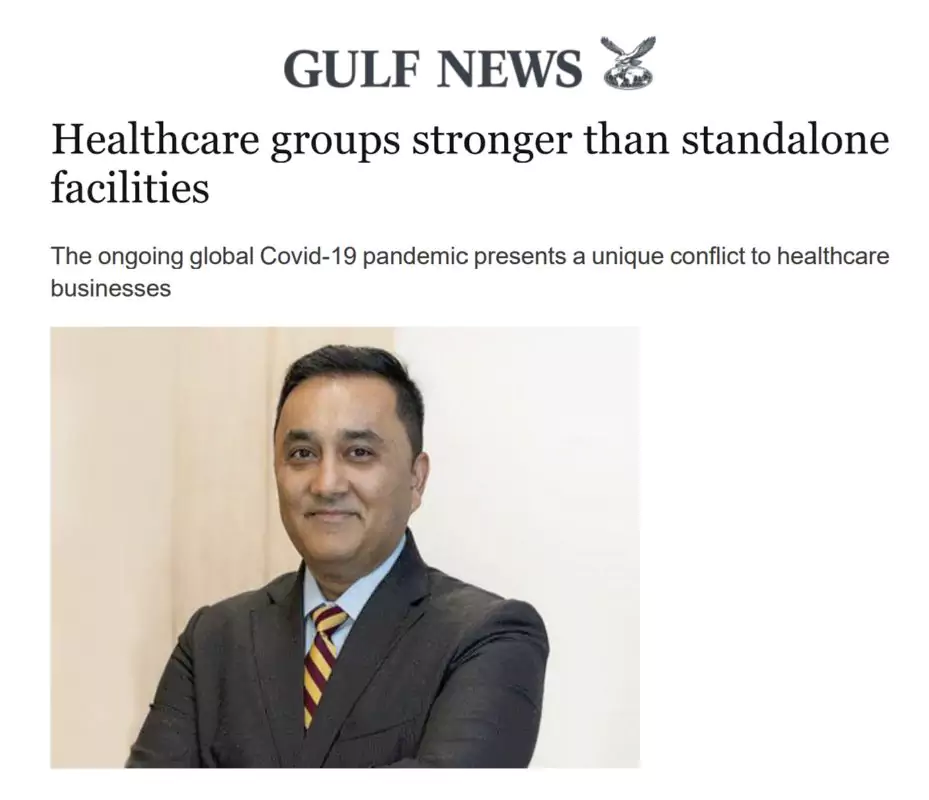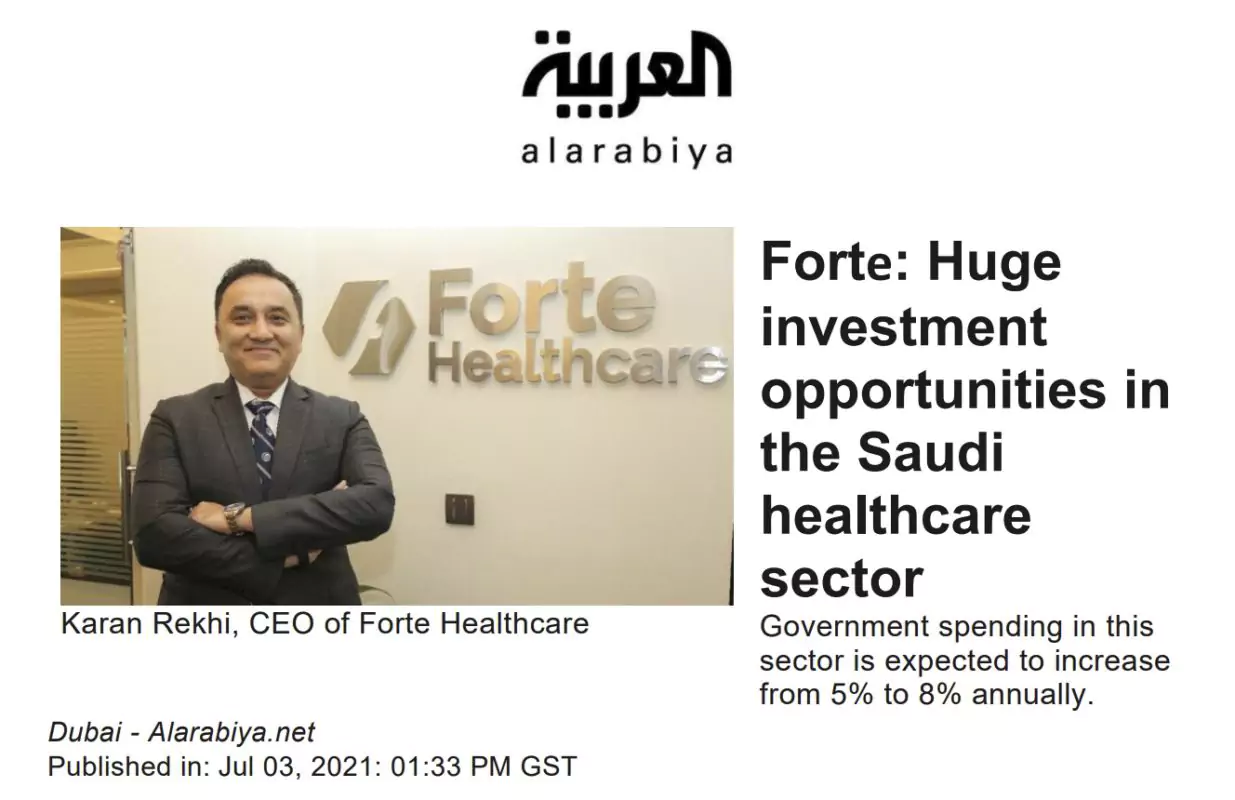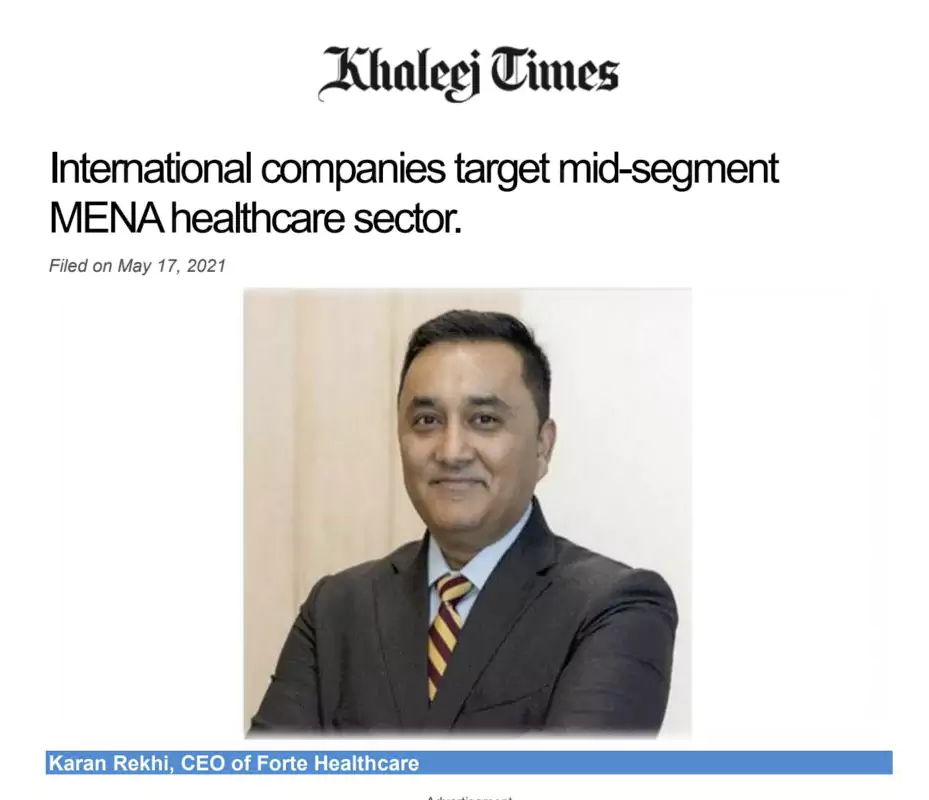Healthcare groups stronger than standalone facilities
While hospitals operated at the forefront at maximum capacity to manage Covid and emergency cases in these unprecedented times, multiple “elective” departments such as plastic surgery, dentistry, aesthetic dermatology, and ophthalmology were given the short end of the stick during periods of intense lockdown, resulting in financial loss.
Karan Rekhi, CEO of Forte Healthcare, a renowned consultancy firm, observed that healthcare chains were seen to be more resilient than their counterpart, the humble standalone clinic. These chains benefited and cut costs as they were able to shuffle their staff, and rotations, and rapidly make adequate adjustments within their own facilities to accommodate the changing landscape. Standalone clinics,
Forte: Huge investment opportunities in the Saudi healthcare sector
The CEO of Forte Healthcare, Karan Rekhi, confirmed that the healthcare market in Saudi Arabia has tremendous growth opportunities, with major international companies looking to enter this market in an unprecedented way, especially with the changes that occurred in the markets due to the pandemic. “Covid-19”, highlighted the role of the Saudi market, the largest in the Gulf, as it serves a community in which about 35 million people live.
International companies target the mid-segment MENA healthcare sector
The healthcare sector within the GCC predominantly caters toward an indigenized-based healthcare system, relying primarily on local healthcare facilities to bridge the gap between premium and mid-care markets, with very few international competitors.
According to Karan Rekhi, Forte Healthcare’s CEO, ample opportunities lie within the mid-market care segment, which constitutes almost 30 percent of the population – a recess in the healthcare industry that international companies can profit from in the region



